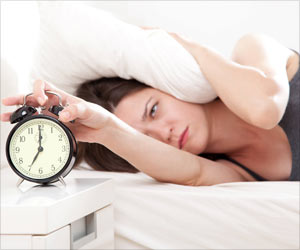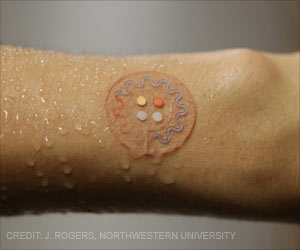Individuals who get less than seven hours' sleep a night were more likely to consume the equivalent of an extra four slices of bread a day.

- Sleep is important for overall health and well-being. Sleep deprivation can have adverse health effects.
- A meta-analysis found that sleep deprived people consume more calories during the following day.
- On an average, sleep deprived people consumed 385 extra calories a day than those who slept for longer.
The researchers combined the results of 11 studies with a total of 172 participants. The meta-analysis included studies that compared a partial sleep restriction intervention with an unrestricted sleep control and measured the individuals' energy intake over the next 24 hours.
The sleep duration of the participants was between three and a half and five and a half hours a night, while the participants in the control group had seven to 12 hours of sleep. The researchers found that participants who were awake longer did not tend to expend more energy and they had a net energy gain of 385 calories per day.
The research team found that sleep-deprived participants had a slightly different diet. They had higher fat and lower protein intake, but no change in carbohydrate intake.
Dr Gerda Pot, senior author from the Diabetes & Nutritional Sciences Division at King's College London and Vrije Universiteit Amsterdam, said, “The main cause of obesity is an imbalance between calorie intake and expenditure and this study adds to accumulating evidence that sleep deprivation could contribute to this imbalance. So there may be some truth in the saying 'early to bed, early to rise, makes a man healthy and wise.”
Another study which involved 26 adults found that partial sleep deprivation resulted in greater activation of areas in the brain associated with reward when people were exposed to food. The authors noted that sleep deprived people become more motivated to seek out food. Sleep deprivation disrupts internal body clock, affecting the body’s regulation of leptin (the 'satiety' hormone) and ghrelin (the 'hunger' hormone).
Haya Al Khatib, the lead author and PhD candidate at King's College London, said, “Our results highlight sleep as a third potential factor, in addition to diet and exercise, to target weight gain more effectively. We are currently conducting a randomized controlled trial in habitually short sleepers to explore the effects of sleep extension on indicators of weight gain.”
The study is published in the European Journal of Clinical Nutrition.
Source-Medindia













